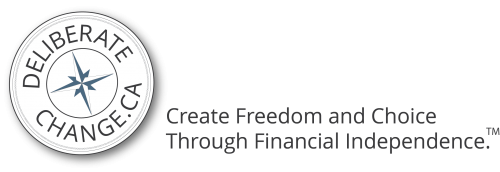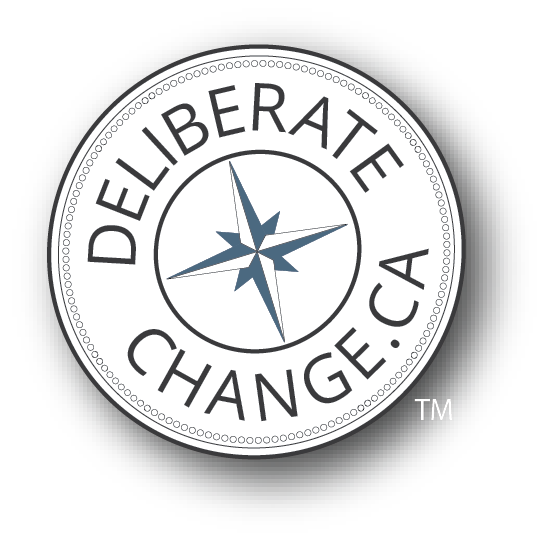
photo credit: Skley Was nun? 65/366 via photopin (license)
Last week I wrote a bit about figuring out what’s important to you and what you really want. Well, let’s put some meat on those bones as we kick off 2018. Today I’m asking you the question: What’s your plan to get there?
I have had the wonderful opportunity to mentor and guide several young people throughout my career. Depending on where they are (high school vs. university/college), I often share the following two key pieces of advice: 1. Develop a marketable skill, and 2. Figure out the steps you need to take to get where you want, then follow them. I also highly recommend that they keep living on a student budget for several years after graduation to get a huge financial jump start on life, but that’s a topic for another day!
These tidbits of knowledge are still quite applicable as you progress through your career, as I’ve found out. Although when you think about it, they really should be reversed!
Figure out the steps you need to take
Building on last week’s post, start at the end and reverse-engineer your next several years. Do you want to be the CEO of a major corporation or be a stay-at-home parent? Do you want settle down and raise a family in a nice suburban neighbourhood, like I did? Perhaps you want to be a high-flying entrepreneur? Or would you rather retire early and travel the world on your schedule?

photo credit: www.ilkkajukarainen.fi WP_20160707_23_39_29_Pro via photopin (license)
Regardless of what you want out of life, seek out others you look up to who have already achieved it. Follow in their footsteps, but be sure that you recognize “The Idea of It vs. The It Itself”. In other words, take some time to learn if you really want what you think you want. In these days of heavy social media and celebrity fame & fortune, it’s very easy to miss all of the negatives that go along with whatever dreams and goals you have. Remember, all choices have pro’s and cons, so think it through carefully. Maybe even follow a few of my recommended decision-making steps.
Remember the difference between the Idea of It and the It Itself
Plan out major milestones and associated timelines. Do you need a specific education or experience? How will the budget come together? Are you networking and connecting with the right people who can encourage you and help you succeed? Start with the big picture and fill in the details if or as required.
Ultimately, though, you will need to get good enough at something that someone will be willing to pay you for your time or knowledge. In other words, you still need to develop a marketable skill.
Develop a marketable skill – Or follow your passion?
There are actually some dissenting opinions about this one, as summarized by this post from Millennial Revolution.
The first opinion is to follow your passion. If you work hard enough at it, the money will come. But if your passion is not associated with a decent income-producing career (or if the wait is years or decades long), then you’re going to have trouble feeding yourself in the meantime.
The second opinion is to get really, really good at something, and then become passionate about it as your skills increase and other people flock to you.
There is yet a third opinion: Strictly follow the money first and then follow your passion once you’re financially independent.
I tend to dance between the 2nd and 3rd opinions. I’m not so sure about becoming passionate about something just because you’re rather good at it (although being good certainly helps!), but at the same time I don’t believe in full-out sacrifice today for a better tomorrow. There needs to be some balance in the game, such as pursuing your passion as a side-hustle outside of your main work. However, if I had known about this before having a family, perhaps I might have committed to option 3?
Regardless, I firmly believe that you need to systematically build up a marketable skill to allow you to take control of your life and drive it in the direction you really want. Having a solid, in-demand marketable skill will allow you to earn enough money to obtain long-term financial security, regardless of when you choose to retire.

photo credit: Kaitlin K Tetris Cube- impossible via photopin (license)
In other words, you need to become good enough at something that someone is willing to pay you top dollar. The possibilities are endless! For example, it could result in a salaried position or an entrepreneurial venture such as real estate investing, software development, landscaping, general contracting, etc., etc., etc. It could involve university and/or college, as long as you pick a program that has a high likelihood of delivering a specific skillset. Or you could continue to develop your skillset through training, reading books or blogs like this one, self-awareness, learning from your and others’ mistakes, perfect practice, and accountability with others.
How about some real-world examples now?
Unfortunately, I know people who follow their passion and struggle to make ends meet for years and years. But I also know (and know of) many who make it work.
Janice
I have a friend I’ll call Janice. Janice is passionate about the environment and also wants to spend as much time travelling as possible. She earned a university degree in environmental science, but was clever enough to also pick up a minor in Geographical Information Systems (GIS). Although she never really liked GIS, it provided a very tangible, in-demand skill that allowed her to get a job pretty much anywhere within a thousand miles of the Alberta oil fields. This in turn kept her close to the mountains while funding her travel bug.
Because she was good at what she did (even though she wasn’t exactly passionate about it), her overall plan was successful: work, save, quit, travel, find new work, repeat. She kept up this process until she arrived at the point where she decided to follow her environmental passion as a career, and not just as a side hustle. She and her husband are frugal enough and resourceful enough that they can make things work for them on a fraction of the budget that most people would deem “necessary”.
Kristy and Bryce
Another great example is the couple who blog over at Millennial Revolution. Kristy and Bryce write about getting high-paying jobs in the tech industry, bailing on the over-priced housing market, and then fully retiring to travel the world after only 9 years in the workforce! But of particular interest to today’s post, they write about how much they hated their jobs but pushed through. They knew that the end was in sight and that they could then follow their dreams and passions for the rest of their lives.
Michael
Then there’s my friend Michael. He reached financial independence by building a $1M+ real estate empire before his 25th birthday! Michael put in tremendous time and effort developing the knowledge and skills to make some serious coin in the real estate industry. He traded off about 7 years of 80-100 hr work weeks in exchange for what is now complete freedom from here on out. At 24!
What do Michael, Kristy and Bryce have in common? They sacrificed a few years of youthful “partying” for an entire lifetime of freedom and choice. And with Janice, she took the approach of sacrificing a reliable career in order to follow her passion. She made this possible by first leaning on that marketable skill and continually living a deliberately frugal lifestyle.
Regardless of which approach you choose, make a choice. Be deliberate. Work backwards and put the pieces in the place to make it happen. Run the trade-offs and dive in!
So what choice have I made?
Long ago in a galaxy far, far away…
Years ago, I decided that I wanted the typical suburban family life. I chose a career in engineering with a focus on vehicle dynamics, control systems, and computer simulations as my primary marketable skill. (Yeah, I’m a bit of a nerd – but I’m also very good at what I do.) I later branched out into project management and customer-facing roles (because engineers with even a small amount of people skills are a rather difficult breed to come by). And about a year ago, I moved back into the automotive technical environment, developing vehicle chassis control systems (did I bail on my people skills, or is this just more fun??).
This last move resulted in two separate categories of reaction: bewilderment and congratulations. I think people were shocked that I was leaving a “management stream” and moving “backwards” into a technical stream. But my move was lateral, and others saw it as a great step in my own career and in support of our company, which happens to be on a technology development kick right now that I can support in a big way.
What’s your plan? What’s MY plan?
Regardless of the perspective, last year’s move is a very real, concrete example of deciding what I really want and taking specific steps to get there. It draws me back to an in-demand career path where I can further hone my technical skills in the knowledge-based economy, while simultaneously filling an important need at the office. Win-win!
Most importantly, however, it’s a good way for me to move closer to my goals and interests. This, in turn, will help keep me engaged and excited about doing what I do. Will said excitement last forever? I doubt it, which is why I am also simultaneously planning my next moves.
For example, I’ve started DeliberateChange.ca, gone public on Facebook, and created a LinkedIn account. I’m also queuing up my next career moves for 2-5 years from now. They’re not for public consumption at the moment, although I have communicated with my boss and trusted advisors.
The point is that I’m thinking ahead and planning and trying to put pieces in place to get there. As I mentioned last week, I certainly don’t have all the answers, nor do I pretend to, but slowly and steadily I’m moving deliberately from “here” to “there”.
 Your Turn Now!
Your Turn Now!
So what’s your plan, anyway? Which of the opinions/options resonates most with you? Have you given any thought to what you really want and how you’ll achieve it? And perhaps most importantly, what are you doing specifically and deliberately to move from your “here” to your “there”?


 Your Turn Now!
Your Turn Now!







[…] 28, 2017 by Chris Urbaniak Leave a Comment What’s Your Plan, Anyway? Merry Christmas from Our Family to […]